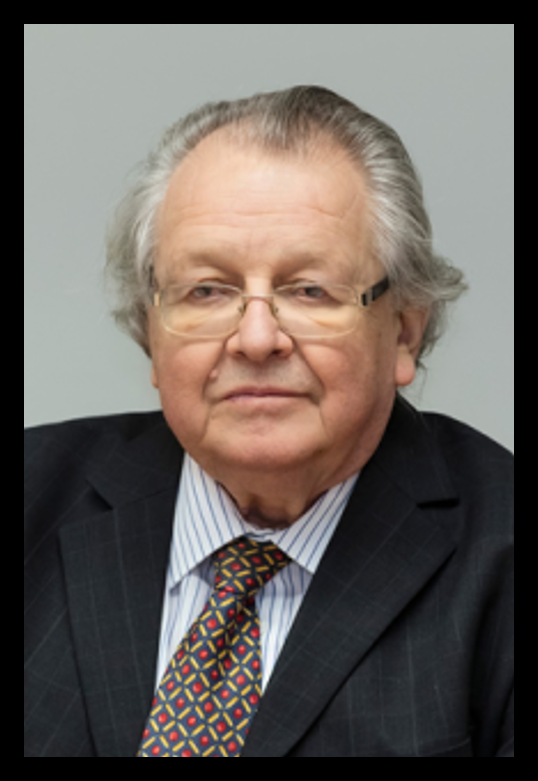
Sir George Charles Radda, recipient of the Hungarian Corvin Chain, the Royal Society Buchanan Medal, the Order of the British Empire, and the Semmelweis Budapest Award, honorary member of the Hungarian Academy of Sciences, founding member of the Friends of Hungary Foundation, and member of the Board of the Hungarian Corvin Chain passed away on 13 September 2024 at the age of 88. Prof. Dr. Szilveszter E Vizi, President of the Board of the Hungarian Corvin Chain, former President of the Hungarian Academy of Sciences, and former President of the Friends of Hungary Foundation, reflecting on his memory, said, "He leaves behind an immensely rich legacy; his tireless efforts serve as both an inspiration and a guide for future generations.” Rest in peace, Sir Radda.

Professor Radda was born on 9 June 1936 in Győr, Hungary. He completed his secondary education at the Pannonhalma Benedictine Secondary School, before being admitted to the chemistry programme at Eötvös Loránd University. In 1956, he left Hungary, and went on to earn his degree and doctorate at the University of Oxford. Between 1962 and 1963, he worked alongside Nobel laureate Professor Melvin Calvin at the University of California, Berkeley. From 1964 to 1984, he served as a Fellow of Merton College, University of Oxford, and as a lecturer in biochemistry. From 1988 to 1996, he led the Medical Research Council's Biochemical and Clinical Magnetic Resonance Unit. He is renowned for his pivotal role in the development of magnetic resonance imaging (MRI). Between 1991 and 1996, he was Head of the Department of Biochemistry at Oxford University, and from 1996 to 2003, he served as Chief Executive of the UK Medical Research Council (MRC). His research focused on enzyme regulation, bioenergetics, and the biochemistry of living organisms, particularly in relation to human diseases such as heart disease, diabetes, and metabolic syndrome.
Between 2001 and 2003, he served as President of the National Cancer Research Institute in London, and from 2005 to 2008, he held the position of Head of the Department of Physiology, Anatomy and Genetics at the University of Oxford. In 2005, he founded the Singapore Bioimaging Consortium (SBIC) and served as its President until 2010. He played a pivotal role in fostering scientific collaboration and the exchange of expertise between Singapore and Hungary. From 2008 to 2016, he served as Chairman of the Biomedical Research Council of Singapore’s Agency for Science, Technology and Research (A*STAR).
Since 1980, he has been a Fellow of the Royal Society, and from 1984 to 2003, he held the position of Professor of Molecular Cardiology at the British Heart Foundation. He is a member of several prestigious academies, including Academia Europaea, and has been an Honorary Member of the Hungarian Academy of Sciences since 2010. He has been awarded honorary doctorates by twelve universities, including the University of Debrecen and Semmelweis University. In 2023, he became the Doyen of the President's Circle at the HUN-REN Hungarian Research Network.
At the outset of his career, he investigated the structure and function of enzymes and membranes using fluorescent probes. He played a pioneering role in the application of nuclear magnetic resonance (NMR) to the human body. The author of over 800 publications, he once articulated his philosophy as follows: "A completely new approach is required for different disciplines not only to work together but to think together in solving humanity's greatest challenges."
In 2011, he was honoured with the Semmelweis Budapest Award. This prestigious accolade is bestowed upon internationally renowned scientists active in biomedical research whose achievements reflect the spirit of the university’s eponym, Ignác Semmelweis. The award criteria further stipulate that the recipient’s research must serve the betterment of humanity and pave the way for new discoveries in the understanding of living nature.
His work has been recognised with numerous awards and honours, including the Colworth Medal (1969), the British Heart Foundation Gold Medal (1982), The Royal Society Buchanan Medal (1987), the Order of the British Empire (1993), a knighthood conferred by Her Majesty Queen Elizabeth II (2000), the Medal of Merit from the International Academy of Cardiovascular Sciences (2006), the Semmelweis Budapest Award (2011), the BioSpectrum Asia Pacific Lifetime Achievement Award (2013), the Commander’s Cross of the Hungarian Order of Merit (2016), and the Hungarian Corvin Chain (2018).